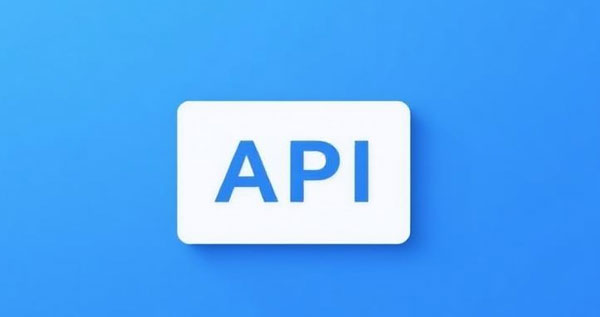Residential Proxies vs. Data Center Proxies: Which One Suits You Best?
In today’s digital age, proxy servers have become essential tools for both individuals and businesses. Whether it’s safeguarding privacy, bypassing geo-restrictions, or collecting large-scale data, proxies offer critical support. Among the most common options are residential proxies and data center proxies, each with distinct technical features, use cases, and cost benefits. This article dives deep into the differences between the two, helping you choose the right proxy type based on your needs to maximize efficiency and optimize resources.
What Are Residential Proxies and Data Center Proxies?
Residential Proxies
Residential proxies use IP addresses assigned to real residential devices by Internet Service Providers (ISPs). These IPs mimic the online behavior of everyday users, offering exceptional anonymity and credibility. For example, a residential proxy IP might originate from a home broadband connection in a specific city, making it nearly indistinguishable from genuine user traffic.
Data Center Proxies
In contrast, data center proxies rely on IP addresses generated and managed by servers in data centers, typically operated by third-party providers. Unlike residential IPs, these addresses don’t come from real residential networks. However, they excel in speed and affordability thanks to the dedicated server infrastructure.
Residential Proxies: Champions of Anonymity and Flexibility
Key Strengths
High Anonymity: Sourced from real devices, residential proxies are tough for websites to flag as bots, making them ideal for tasks requiring stealth.
Geographic Flexibility: With coverage across multiple regions, they can accurately simulate user behavior from various locations.
Reliability: A diverse IP pool and frequent rotation ensure uninterrupted tasks, even if some IPs get blocked.
Use Cases
Web Scraping: When extracting data from e-commerce platforms or social media, residential proxies evade anti-bot measures, ensuring consistent data collection. For instance, a company might use them to gather pricing info from different regions.
Market Research: Simulate users in various countries to test ad performance or analyze competitors’ localized strategies.
Multi-Account Management: In social media marketing, residential proxies help manage multiple accounts without triggering bans due to IP association.
Technical Insights
Residential proxies operate using a vast pool of IPs, often sourced from user devices (e.g., routers) or peer-to-peer (P2P) networks. Providers employ dynamic rotation to assign a new IP per request. Take Luckdata, for example—it offers over 120 million residential IPs across 200+ locations worldwide, with response times as low as 0.6 milliseconds and a 99.99% uptime, delivering top-tier stability and efficiency.
Data Center Proxies: Balancing Speed and Cost
Key Strengths
High Speed: Running on dedicated servers, data center proxies offer low latency and high bandwidth, perfect for fast-response tasks.
Cost-Effectiveness: Lower operational costs translate to more affordable pricing compared to residential proxies.
Ease of Management: Centralized and stable IPs make them straightforward to configure and use for bulk operations.
Use Cases
Streaming Media Access: For watching videos or listening to music, data center proxies ensure smooth performance, such as unlocking region-specific Netflix content.
Automated Tasks: Ideal for bulk downloads, software testing, or basic data collection where high anonymity isn’t critical.
Basic Privacy Protection: Hides your real IP during casual browsing, meeting simple privacy needs.
Technical Insights
Data center proxy IPs are typically generated in bulk by cloud providers or data centers, lacking the residential authenticity that makes them more detectable by advanced anti-scraping systems. However, their optimized server design shines through. For instance, Luckdata’s data center proxies offer a 5GB/30-day plan for just $12, combining reliable connections and fast response times—a budget-friendly option for many users.
Head-to-Head Comparison: Breaking Down the Differences
To give you a clearer picture, here’s a detailed comparison across key dimensions:
Aspect | Residential Proxies | Data Center Proxies |
|---|---|---|
IP Source | Real residential networks | Data center servers |
Anonymity | High (hard to detect) | Medium-Low (easier to spot) |
Speed | Moderate (varies by network) | High (server-optimized) |
Reliability | High (flexible IP rotation) | Good (server stability) |
Cost | Higher ($15+) | Lower ($12+) |
Geo-Flexibility | High (global coverage) | Low (fixed locations) |
Best For | Scraping, market research | Streaming, bulk tasks |
Anonymity: Residential proxies excel against anti-bot systems due to their authentic IPs, while data center proxies risk bulk bans from centralized sources.
Speed: Data center proxies leverage dedicated servers for faster average response times, ideal for high-frequency tasks.
Cost: Residential proxies cost more due to IP acquisition and maintenance, whereas data center proxies offer savings.
Geo-Flexibility: Residential proxies mimic global users, while data center IPs are tied to specific server locations.
How to Choose? Tailoring to Your Needs
The decision between residential and data center proxies hinges on your specific goals:
Need High Anonymity?
If your tasks involve web scraping, AI training data collection, or multi-account management, residential proxies are the way to go. They dodge detection effectively, ensuring higher success rates.Prioritizing Speed and Cost?
For streaming media, bulk downloads, or basic privacy protection, data center proxies deliver speed and affordability that outshine residential options.Mixed Requirements?
Some scenarios benefit from both. A business might use residential proxies for market research while relying on data center proxies for website performance testing. Providers like Luckdata offer versatile plans to meet such hybrid needs seamlessly.
Conclusion
Neither residential nor data center proxies are inherently superior—it’s all about what fits your purpose. Residential proxies shine with their anonymity and geographic versatility, making them perfect for data-heavy, stealth-dependent tasks. Data center proxies, with their speed and cost advantages, cater to high-efficiency, budget-conscious operations. By aligning your choice with your goals—be it reliable data scraping or fast content access—you can optimize both performance and budget.
For instance, Luckdata stands out as a leading provider, offering over 120 million residential IPs and efficient data center proxies. Whether you opt for their residential or data center solutions, you’re assured of robust support. Use this comparison as a guide to pick the proxy type that best suits your needs and unlock the full potential of your online endeavors!




